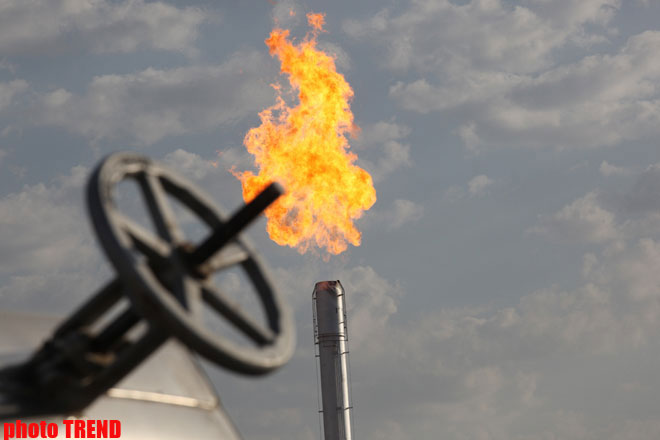Azerbaijan, Baku, Dec.18, Trend D. Khatinoglu /
Afghan authorities have great hopes for the project of construction of Turkmenistan-Afghanistan-Pakistan-India (TAPI) pipeline and voice willingness to ensure its safety, despite the fact that a concrete plan for financial and technical issues of this project has not been yet prepared, the Afghan Foreign Ministry's Economy Department head Azizullah Omar told Trend.
Ashgabat hosted the summit of the TAPI gas pipeline project's participant states on Dec.11, as a result of which the leaders of three countries, as well as the Indian Minister of Oil and Natural Gas Murli Deora signed a framework agreement on the gas pipeline and an intergovernmental agreement on the TAPI gas pipeline project.
It is expected that the pipeline, whose construction is scheduled to be completed by late 2014, will allow transporting 33 billion cubic meters of gas annually, only about 18 billion cubic meters of which India is ready to buy. The cost of the pipeline construction is estimated at $7.6 billion. Nevertheless, the signed agreements don't contain many of the necessary details, such as the exact date of the implementation of the project, the amount of the transit rates, as well as financing terms.
Regarding to financial and technical issues of the project, Omar said that the majority of the project funds will be provided by the Asian Development Bank.
"We are holding discussions with the bank on this matter. But so far we have not agreed on a specific sum, despite the fact that the ADB has agreed to fund the project. It is assumed that three billion dollars will be required for the construction of the pipeline in Afghanistan's territory. In 2005, the Asian Development Bank agreed to partially fund the project," Omar said.
Under the project, India plans to get 18 billion cubic meters of gas from the pipeline, while Pakistan - about 12 billion cubic meters of gas. According to Omar, Afghanistan plans to get 5.1 billion cubic meters of gas from the TAPI project.
As an expert on energy security at the University of Glasgow, Professor Reza Taghizadeh told Trend, Afghanistan has no gas distribution networks. In addition to this the country has no industrial facilities needing gas and it is not clear how and where Kabul will use gas received from the TAPI project.
However, as the Afghan Foreign Ministry's official Omar said, the TAPI project will be commissioned in 2014 and a plan for creating gas pipeline network will be realized during this period.
"While there is no infrastructure, but we discuss this issue. Part of the gas will be provided for cities' needs, the other part - for the needs of industrial facilities," Omar said over telephone.
However, it is not clear exactly in what spheres the gas received from the TAPI gas project will be used, and what amount will account for one or another sphere. Discussions on this issue are underway.
Despite the existing problems, Omar highly assesses the project's prospects.
According to him, about 5,000-7,000 people will deal with ensuring the project's safety, about thousands people will be involved in the pipeline construction.
According to the feasibility study of the project, the pipeline will stretch for 1,735 kilometers from the major Dovletabad field in eastern Turkmenistan, will pass through Herat and Kandahar provinces (Afghanistan), Quetta District (Pakistan) and reach Fazilk settlement (India) on the Pakistan-Indian border.
The first concerns about the safety of the project are that part of the pipeline passes through the territories of Afghanistan, which are controlled by the Taliban.
Meanwhile, Afghanistan can receive significant benefits from the project, which will contribute to raising the country's economy, creating many new jobs, building social infrastructure and political stability throughout the region.
Project participants have to find banks and companies that wish to join the consortium to build the pipeline. It is assumed that part of costs will be covered by the Asian Development Bank (ADB), which in 2005 financed a feasibility study for TAPI.
The United States and Russia also stated their intention to promote the construction of the pipeline.






